Flip Video/Underwater Case Review
Simple, affordable HD video
For the past several months I’ve been testing two of the popular Flip pocket camcorders, the MinoHD and the UltraHD. (Full web-review disclosure: I believe they’re supposed to go back to the manufacturer…although I’m certainly in no hurry.) Why two? Because I asked Flip reps about the reality of shooting video out on the water aboard a personal watercraft or boat. It’s fun to shoot video of your travel trips, or just a great day on the water, but unless you’ve got some pretty high-tech gear, water and electronics just don’t mix. Turns out Flip makes a nifty waterproof case just for people like me, although it’s only available for the larger Ultra. More on the case later.
Flip cameras are cool for several reasons, but the primary attraction is that they shoot high-definition video (30 frames per second, 1280x720p), yet come in a tiny package. The MinoHD measures a scant 3.94” x 1.97” x 0.66”; the UltraHD 4.25” x 2.19” x 1.17”. Battery life is hard to predict with the rechargeable lithium ion battery on the Mino. I filled up two hours of video and was transferring before it ever ran out, and it recharges every time you plug it in. The Ultra gets about 2.5 hours from removable AAs, or up to 6.5 hours using Energizer e2 batteries.
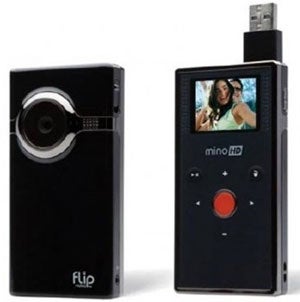 Flip MinoHD
Flip MinoHD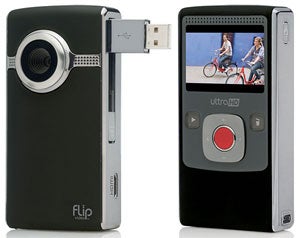 Flip UltraHD
Flip UltraHDWithin the confines of both camera’s enclosures is 8GB of built-in memory (good for about two hours of video), a two-inch LCD view screen, and even an HDMI connector if you want to show your clips directly on an HDTV.
Controls are simple, but that’s kind of the attraction. A power button turns each camera on and off, and a large, central red button stops and starts recording or on-screen playback. You can zoom slightly (2X) or delete a clip, but that’s about all you get. For basic on-the-go video capture, it’s about all you need, and I applaud Flip for keeping things basic and straightforward.
Plug a Flip into a fairly up-to-date Mac or Windows computer via it’s flip-out USB connector and you can view clips, perform basic editing, save clips to the computer, or share them online through various sources, including email, Facebook, YouTube, or through Flip’s own channel. All the software comes on the camera, so there’s nothing to load. There’s even an option to make “quickie” movies that requires nothing more than selecting a few clips, then letting the program choose the cuts and transitions.
I opted to import clips into Apple’s iMovie to create several videos for reviews on PersonalWatercraft.com. Given the tiny stature of the camera, I was impressed with the quality of the overall picture, and surprised how well the microphone picked up my subjects’ narration. Here’s an example of one of the videos I shot with a Flip at this year’s Miami Boat Show. Indoor shots look slightly grainy, but lighting is tough. Outdoor shots displayed nice clarity and color overall.
Just for fun I decided to see what the program’s Magic Movie setting would do with some clips from a recent Kawasaki Jet Ski touring ride off the coast of San Diego. As I mentioned, FlipShare essentially allows you to select clips, type a simple title, and then let Magic Movie compile them into a quick movie, all with no other input from the user. I think the program did a decent job of representing the ride.
Get the Flash Player to see this player. |
The downside to simple movie-making programs like this, especially using video shot by a cold guy on a Jet Ski in the Pacific? It’s jittery. Within iMovie I could stabilize the image for better results. On land I’d suggest the optional tripod for those without a steady hand.
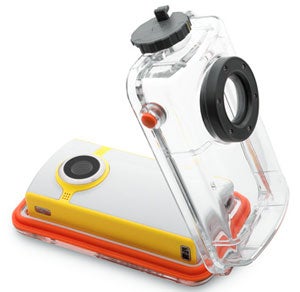 Flip Underwater Case for UltraHD
Flip Underwater Case for UltraHDMy ocean ride turned out to be a good test of Flip’s Underwater Case. This is not a cheap, soft bag, but a professional-quality acrylic housing, waterproof to 30’. It’s also simple, much like the camera it holds. Twist open the top-mounted lock knob, and the two halves of the case hinge open. The camera simply rests in a designated nook, and you close the case and turn the lock to seal things tight. Hint? Take a second to wipe the lens clean before you put it in the housing. You don’t want to risk messing with adjustments out on the water.
On the water the camera operated just as before. The case includes buttons to activate the same controls, including zoom features. A wrist strap kept the camera from slip sliding away.
Gripes? I have some, although they’re relatively minor in the overall scheme of things.
I wish the lens was a little wider angle to start. Sometimes I feel like I’m backing away just to get the image I want in the frame, although to be fair, the microphone still seems to do a good job of picking up audio.
The flip-out USB connector is cool in theory, but not always in practice. It works perfect on my iBook, as it lays directly on a desk or table when plugged in. My desktop iMac, however, is a different story. On this computer, the camera dangles precariously in the air if plugged in directly. I find myself looking for odd-shaped objects to support the camera when charging or transferring video. Flip sells a handy USB extension cable, but for some reason it only comes in a three-pack. I’d rather have just one at a third of the price.
Overall, however, I love the size, convenience, simplicity, and HD picture quality, along with the ease of taking a Flip out on the water. I’d give cameras and case two thumbs up — but I’m using one to operate the camera.
The 120-minute Flip MinoHD retails for $229.99; the 120-minute UltraHD for $199.99; and the Underwater Case for $59.99. For more info, check out TheFlip.com.
Related Reading
Four Must-Have Products
Get PersonalWatercraft.com in your Inbox!
Like PersonalWatercraft.com on Facebook
Comments
Most Popular
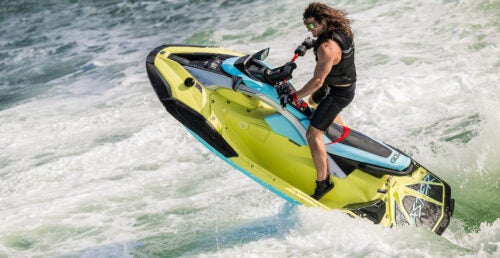
2025 Yamaha JetBlaster PRO 2-Up Review
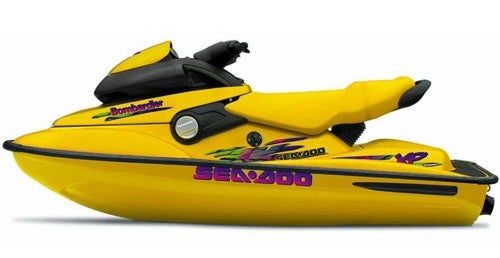
Remembering the Sea-Doo XP
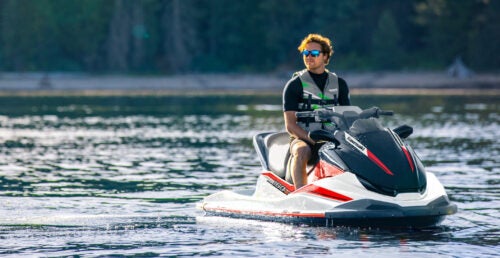
2024 Kawasaki Jet Ski STX 160X Review

2017 Kawasaki Jet Ski Ultra 310LX Review
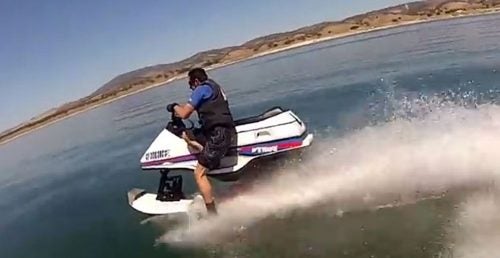
Whatever Happened to the Wetbike?

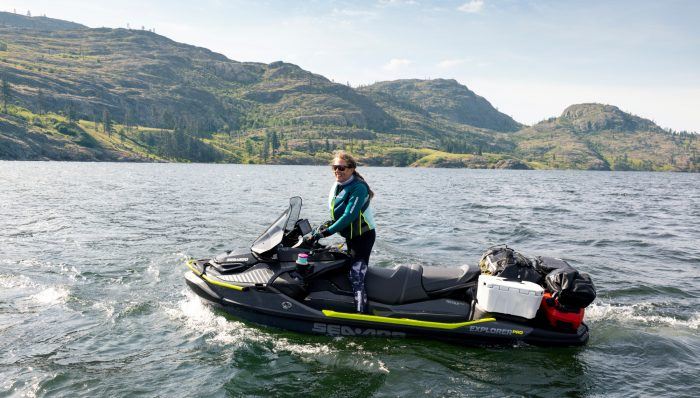
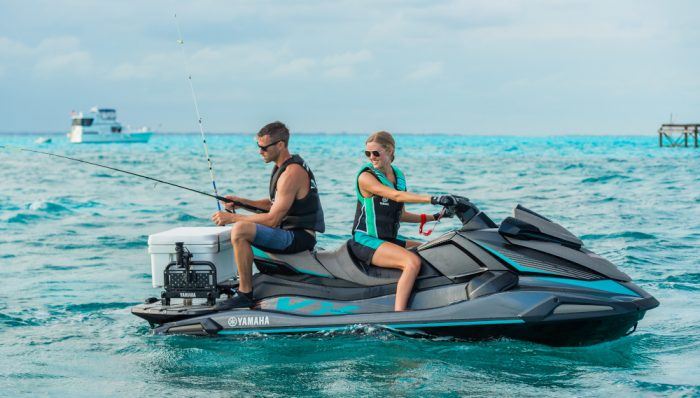
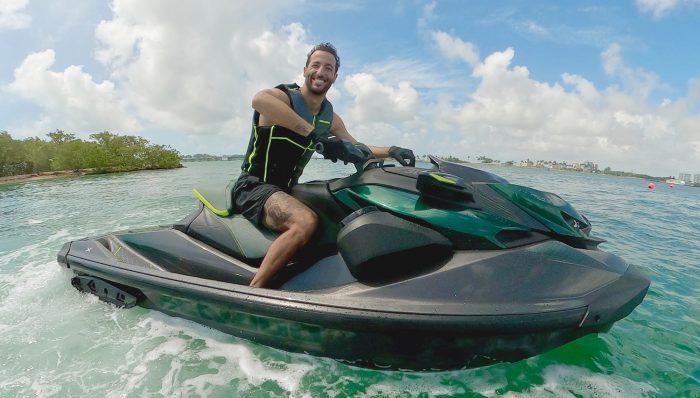





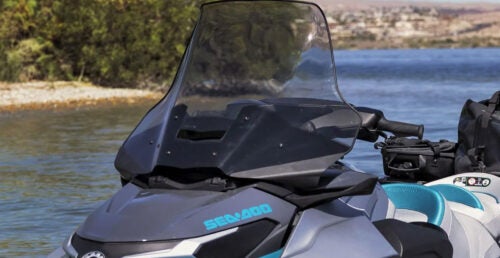



 Your Privacy Choices
Your Privacy Choices